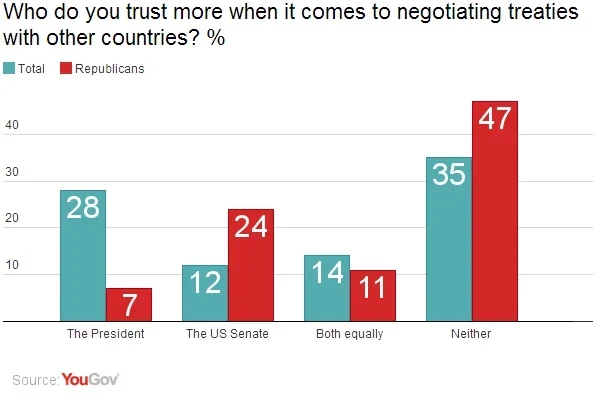Americans tend to support taking a tough line towards the Iranians, but few trust Congress to act in the best interests of the United States when it comes to Iran
Americans would like to see an international agreement which would freeze Iran’s nuclear development, but would rather use a stick than a carrot to get Iran to the negotiating table, according to the latest Economist/YouGov Poll.
By 58% to 25%, Americans approve of the current international agreement that would freeze Iranian nuclear development in return for the easing of sanctions. But more than half think the best way to get Iran to limit its nuclear program is to threaten it with consequences – either military or economic – if Iran does not limit its nuclear program. And, like many members of Congress, Americans would rather take economic, not military, action.
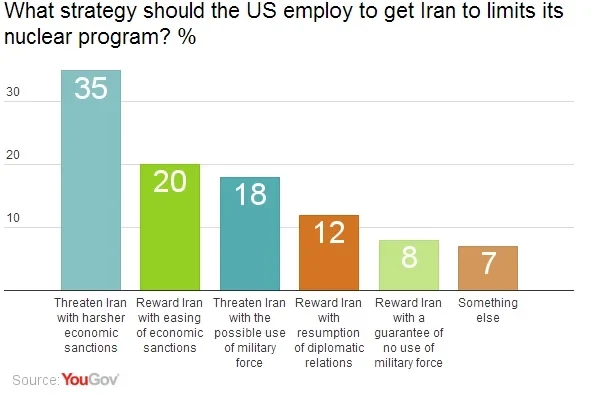
Four in ten would offer Iran a reward for a nuclear reduction. A majority of Democrats would use the carrot; a majority of Republicans favor the stick. Just Monday the U.S. eased sanctions a bit after a United Nations inspection team certified that Iran had cooperated with November’s temporary agreement.
It’s clear that while Americans think that threats may work better than rewards in encouraging Iranian cooperation, many shy away from Americans military action if negotiations fail. 39% would approve of using military force against Iran if negotiations fail. Republicans are more hawkish than Democrats or independents. Six in ten Republicans would support military action if talks fail; majorities of Democrats and independents would not.
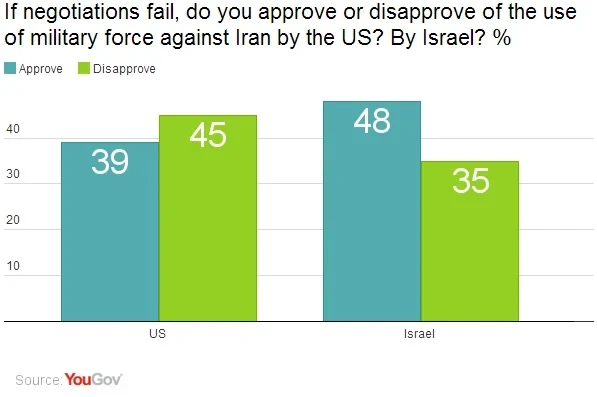
There would be more support for military action against Iran if negotiations fail if military action were taken by Israel and not the United States. A plurality of Independents join with 72% of Republicans in supporting military action by Israel in this case. Democrats are still more likely to oppose that use of military force.
There is a lot of doubt that Iran would keep any agreement it made. Only one in five say they would trust Iran even somewhat to adhere to the terms of any agreement limiting its ability to produce a nuclear weapon. Opinions have changed little since November, when the preliminary agreement was signed. One difficulty in trusting Iran is that most Americans continue to regard that country as at least somewhat of a threat to the United States. 58% now say it is a serious threat, down only a little from a four years ago.
Americans are as likely to disapprove of how the President is handling Iran as they are to approve: 38% approve, 41% do not. Although a majority continues to favor Barack Obama personally reaching out to negotiate with Iranian leaders on Iran’s nuclear program, assessments of the President are strongly affected by partisanship. 59% of Republicans don’t want him to negotiate personally.
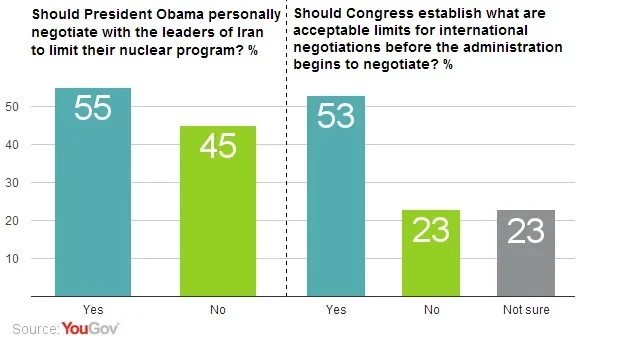
There is an overall feeling that the President should not leave Congress out of the negotiating process. More than half would have Congress set the acceptable limits for international negotiations. Democrats, Republicans and independents agree, though by varying margins. 71% of Republicans want Congress to set limits; 46% of Democrats agree.
Of course, any treaty requires Senate approval – although that process is not necessarily understood by many Americans. In fact nearly one in four oppose Senate approval of all treaties. Another quarter just aren‘t sure.
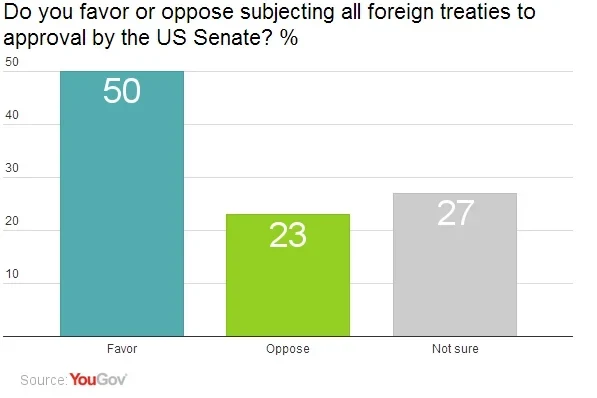
(The U.S. Constitution requires that all treaties receives the approval of two-thirds of the Senate. In the current Senate, that would mean that at least some Republicans must give their consent to any treaty; unified minority opposition to any treaty would mean its defeat.)
In the case of Iran, many Americans think both the President and Congress are acting for political reasons. 58% of Democrats give the President credit for acting in the best interests of the United States; but all party groups believe that Congress behaves as it does because of politics.
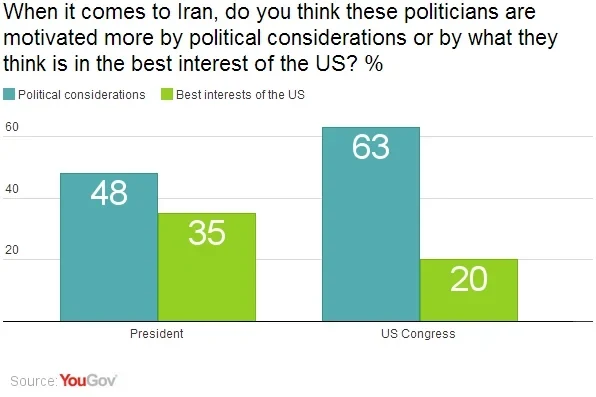
So there isn’t a lot of trust to go around: 28% trust the President more than the Senate when it comes to treaties; 12% trust the Senate more. More than a third trust neither. Since both the White House and the Senate are controlled by Democrats, it’s no surprise that nearly half of Republicans in this poll trust neither.
